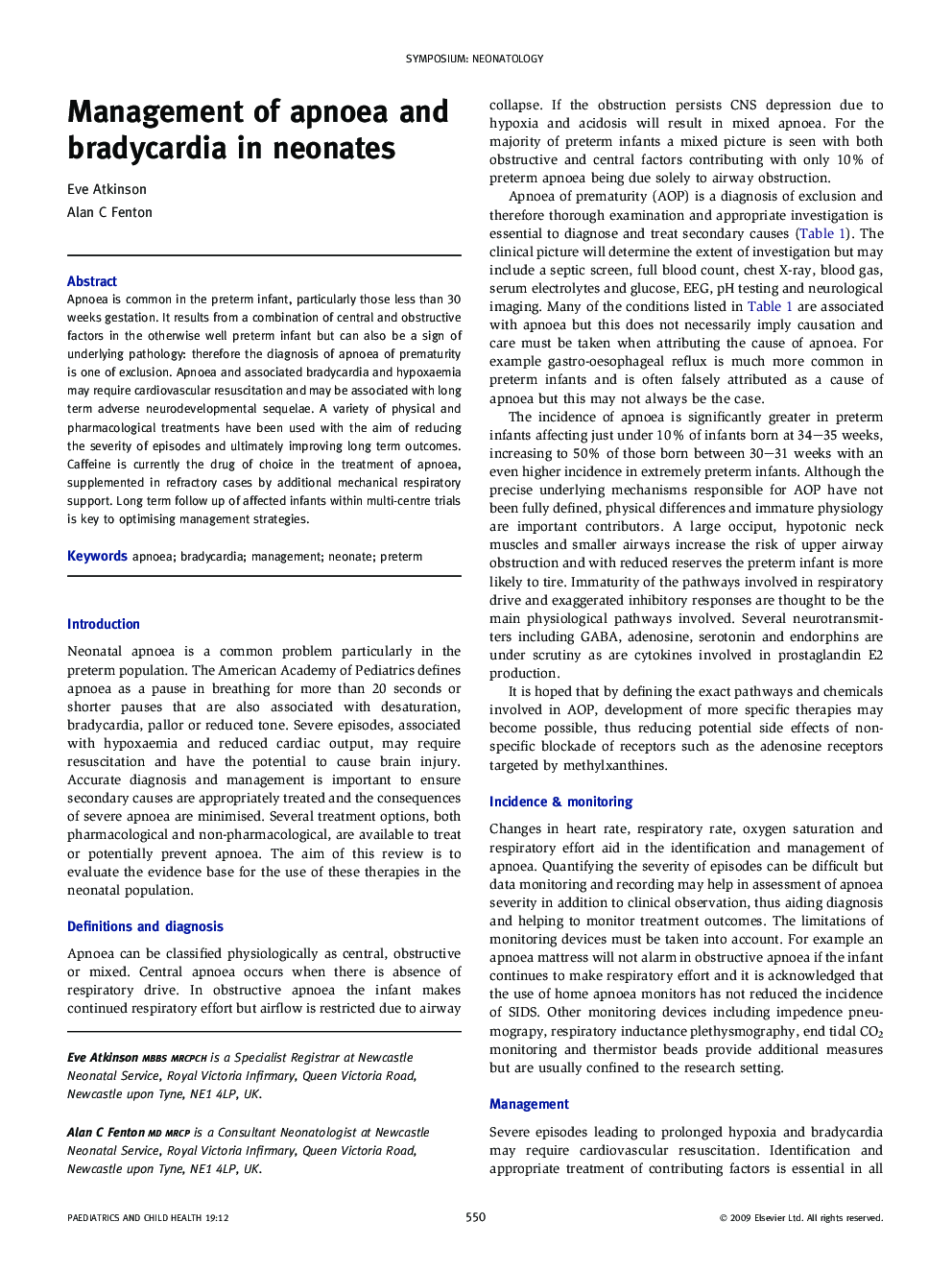| Article ID | Journal | Published Year | Pages | File Type |
|---|---|---|---|---|
| 4172851 | Paediatrics and Child Health | 2009 | 5 Pages |
Apnoea is common in the preterm infant, particularly those less than 30 weeks gestation. It results from a combination of central and obstructive factors in the otherwise well preterm infant but can also be a sign of underlying pathology: therefore the diagnosis of apnoea of prematurity is one of exclusion. Apnoea and associated bradycardia and hypoxaemia may require cardiovascular resuscitation and may be associated with long term adverse neurodevelopmental sequelae. A variety of physical and pharmacological treatments have been used with the aim of reducing the severity of episodes and ultimately improving long term outcomes. Caffeine is currently the drug of choice in the treatment of apnoea, supplemented in refractory cases by additional mechanical respiratory support. Long term follow up of affected infants within multi-centre trials is key to optimising management strategies.
